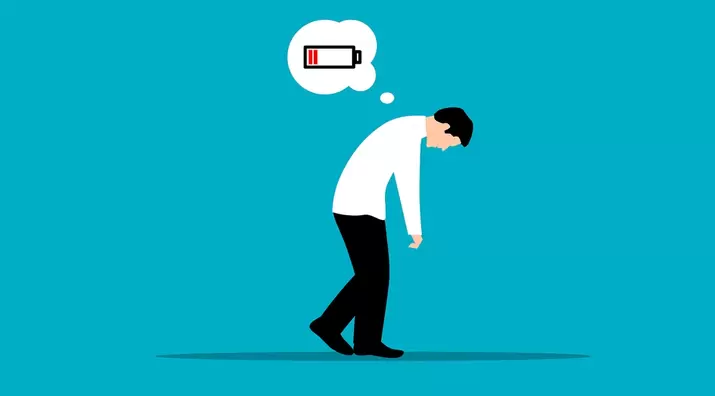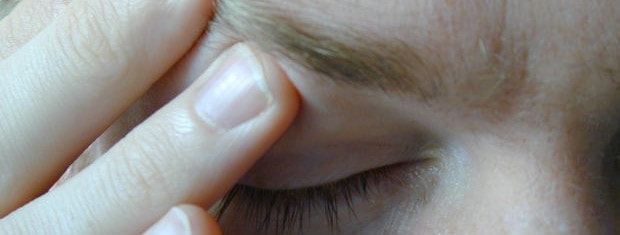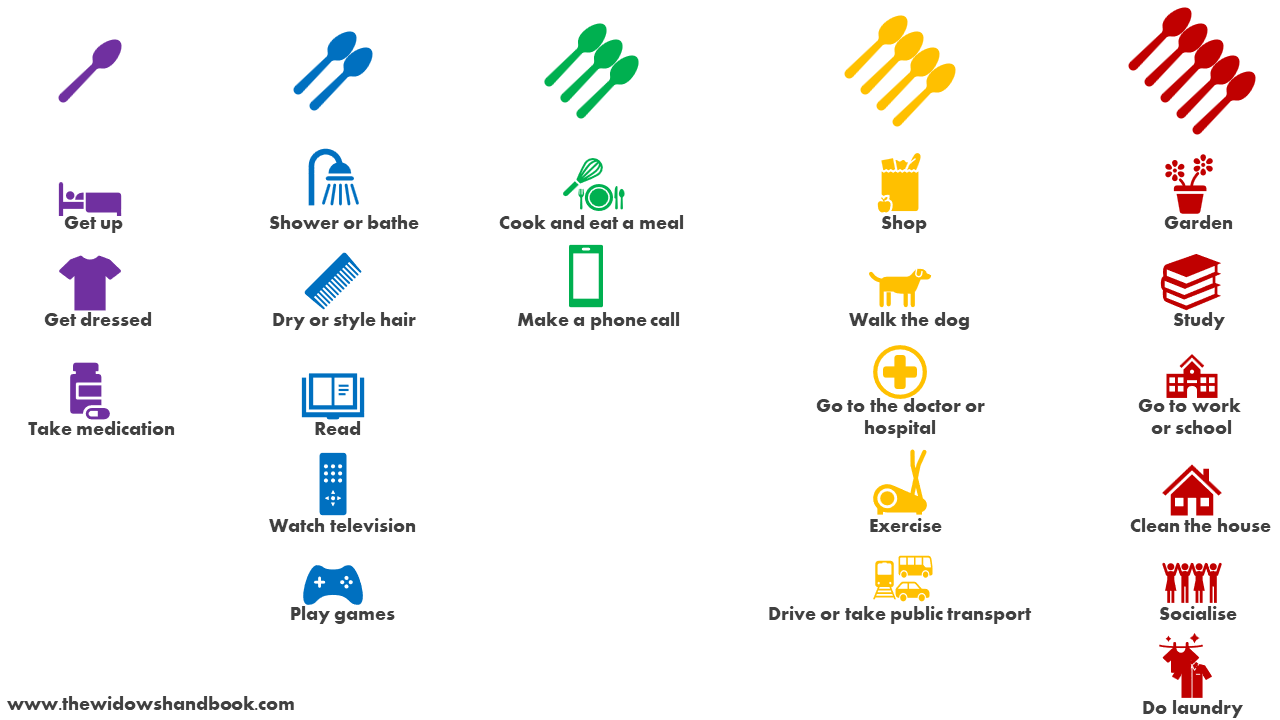|
When Tim died it hurt. And I don't just mean that my heart broke. I mean that I hurt physically. I felt so tired that my bones ached. My stomach hurt. I felt sick. My head ached. I didn't experience this, but I know that other widows had chest pains so bad they ended up in A&E. And there's widow brain too. It's all completely normal with the shock and sadness that comes along with bereavement.
Please remember, though – if any of these symptoms become distressing, last a long time or get worse, please talk to your doctor, call 111, or in an emergency, call 999. Being exhausted Grief messes with our sleep, gives our brains a lot to do, stops us eating properly – it's hardly surprising it leaves us exhausted. Try to eat as well as you can, sleep when you can and manage your energy. Feeling pain in muscles and joints The tension of grief can leave us with aches and pains, and grief can actually make pain worse. Try to exercise if you can – even just a walk round the block – as exercise can improve mood. Try having a massage, which can also help skin hunger. Colleges that run health and beauty courses often have low-cost massages to provide experience for students. Chest pain and shortness of breath Chest pain and shortness of breath are associated with anxiety. However, if these come on suddenly or are painful, talk to your doctor of call 999 – paramedics and doctors would rather be called in for something that isn't serious that miss something that really is. Headaches Headaches often accompany anxiety and stress. Trying to relax can help, but it's easier said that done. Warm baths and music helped me. Widow brain The confusion, forgetfulness and lack of concentration that comes alongside bereavement is often known as widow brain. Stomach upsets and appetite changes Grief can make us eat more, eat less, eat junk food, comfort eat feel sick, feel hungry, think we are never going to feel hungry again. This is all normal and will settle. Try and eat some fruit and veg, but eat what makes you feel comforted. Picking up bugs Grief can affect our immune systems, leaving us more vulnerable to infection. Wash your hands regularly, make sure kitchen surfaces are clean, cook food thoroughly, get the vaccines you are offered, and wear a mask in crowded palaces during cold and flu season can help to keep infection levels down. Health anxiety One of the issues with the physical symptoms around grief is that they can become part of health anxiety, where we become convinced that every symptom, from a headache to a painful toe, is something life-changing. I have gastritis, and sometimes when its bad I vomit. I threw up blood one day. My wonderful GP, who was an incredible support to me after Tim died, fast-tracked me for an endoscopy while reassuring me that she was sure everything was okay, and fortunately she was right. On the flip side, bereavement can also leave us caring less about our health and ignoring symptoms. If you are on regular medications, keep taking them (pill boxes and reminders on phones are really helpful) and build in a bit of self care.
2 Comments
 After Tim died, I became so tired. The kind of tired that squashes you flat. The kind of tired that it felt like even my bones hurt. Feeling this exhausted can be scary. But it is a normal part of grief. Why does grief make you tired? You're in shock A psychological shock triggers the fight, flight or freeze response. Our bodies fill with the stress hormone cortisol, desensitising us and putting us on alert. After a bereavement, particularly a sudden and unexpected one, our cortisol levels remain high for a prolonged period of time, leaving us exhausted. Your brain has so much to process Our brains get tired when they are being asked to process information all the time – every decision requires energy. So grief exhaustion is both physical and mental. You can't sleep Grieving often means your head just won't stop – it's full of spinning thoughts and tough memories. You may also be having nightmares, flashbacks or intrusive memories. All of these will affect your sleep. There's so much to do Bereavement leaves us with a lot of admin, from bank accounts to businesses, and from phone contracts to funeral arrangements. There is so much that needs to be completed, and some things must be done in specific timelines. Losing someone also means losing their help at home. This can include routine jobs around the house and caring responsibilities. For some people, bereavement means having to find somewhere else to live, sometimes at short notice. You are hypervigilant Hypervigilance is a state of extreme alertness where you are constantly assessing the environment for threats, both real and perceived. You may feel that since you have been through a traumatic event, what's to stop another? Hypervigilance can be a symptom of post-traumatic stress disorder (PTSD). It is exhausting in itself, as well as making it hard to relax or sleep. You aren't eating properly It can be hard to eat well when you are grieving – it may not seem worth it to cook for one, or your appetite may not be what it was. Not having enough of the right kind of nutrients leaves you without energy. Both your diet and your alcohol intake can also affect the depth of your sleep. What to do?
The spoon theory was created by Christine Miserandino to explain to a friend about what it felt like to have the chronic illness lupus. She used it to describe how every task in a day requires a block of energy, be it physical or mental, and that she had to budget out those blocks across the day. She wrote it up as an essay for her blog. "I quickly grabbed every spoon on the table; hell I grabbed spoons off of the other tables. I looked at her in the eyes and said 'Here you go, you have Lupus'… I asked her to count her spoons. She asked why, and I explained that when you are healthy you expect to have a never-ending supply of spoons. But when you have to now plan your day, you need to know exactly how many spoons you are starting with. It doesn’t guarantee that you might not lose some along the way, but at least it helps to know where you are starting. She counted out 12 spoons…. I asked her to list off the tasks of her day, including the most simple. As she rattled off daily chores, or just fun things to do; I explained how each one would cost her a spoon… I think she was starting to understand when she theoretically didn’t even get to work, and she was left with 6 spoons. I then explained to her that she needed to choose the rest of her day wisely, since when your spoons are gone, they are gone." Spoons and grief The spoon theory was created for chronic illness, but it can also be used for the impact that grief has on your physical and mental spoon numbers. Early on in grief I was so tired that my bones hurt, which took away some of my physical spoons. I also had widow brain, which took away some of my mental spoons too. Creating a spoons graphic based on your own needs can be a useful exercise to help you understand what you need, and what you can do to look after yourself. What you can do
Notes about spoons
 Lack of sleep can have an effect on our health – it's been linked to obesity, heart disease, memory loss, high blood pressure, diabetes and a less effective immune system. Not having enough sleep can leave you craving sugary, salty or carbohydrate-heavy food. Lack of sleep has connections between depression and anxiety. It can even affect your balance. Sleep can be so hard when you are grieving - your head is full of spinning thoughts and tough memories, and you may have nightmares. Here are some hints and tips for improving sleep. During the day
In the evening
Bedtime
If you can't sleep
If insomnia is making you so tired during the day that you can't work, care for yourself or others, or means that driving feels dangerous, talk to your doctor. There may be medications or therapy techniques that could help. |
AuthorI was widowed at 50 when Tim, who I expected would be my happy-ever-after following a marriage break-up, died suddenly from heart failure linked to his type 2 diabetes. Though we'd known each other since our early 20s, we'd been married less than ten years. Archives
July 2024
Categories
All
|




 RSS Feed
RSS Feed